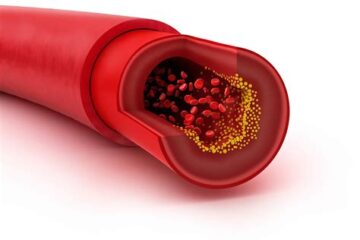
Obesity leads to nonreversible brain response to nutrients @ יואל קסלר
In this post we are reprinting an abstract from Nature Metabolism that demonstrates that there may be irreversible changes in the way the brain responds and recognizes nutrient absorption in obese patients. The full article can be found here.
בפוסט זה ב יואל קסלר .קום אנו מדפיסים מחדש תקציר מתוך זה מראה שעשויים להיות שינויים בלתי הפיכים באופן שבו המוח מגיב ומזהה ספיגת חומרים מזינים בחולים שמנים. את המאמר המלא ניתן למצוא כאן.
Brain responses to nutrients are severely impaired and not reversed by weight loss in humans with obesity: a randomized crossover study
- Katy A. van Galen,
- Anouk Schrantee,
- Kasper W. ter Horst,
- Susanne E. la Fleur,
- Jan Booij,
- R. Todd Constable,
- Gary J. Schwartz,
- Ralph J. DiLeone &
- Mireille J. Serlie
Nature Metabolism (2023)
Abstract
Post-ingestive nutrient signals to the brain regulate eating behaviour in rodents, and impaired responses to these signals have been associated with pathological feeding behaviour and obesity. To study this in humans, we performed a single-blinded, randomized, controlled, crossover study in 30 humans with a healthy body weight (females N = 12, males N = 18) and 30 humans with obesity (females N = 18, males N = 12). We assessed the effect of intragastric glucose, lipid and water (noncaloric isovolumetric control) infusions on the primary endpoints cerebral neuronal activity and striatal dopamine release, as well as on the secondary endpoints plasma hormones and glucose, hunger scores and caloric intake. To study whether impaired responses in participants with obesity would be partially reversible with diet-induced weight loss, imaging was repeated after 10% diet-induced weight loss. We show that intragastric glucose and lipid infusions induce orosensory-independent and preference-independent, nutrient-specific cerebral neuronal activity and striatal dopamine release in lean participants. In contrast, participants with obesity have severely impaired brain responses to post-ingestive nutrients. Importantly, the impaired neuronal responses are not restored after diet-induced weight loss. Impaired neuronal responses to nutritional signals may contribute to overeating and obesity, and ongoing resistance to post-ingestive nutrient signals after significant weight loss may in part explain the high rate of weight regain after successful weight loss.
For more interesting articles like – check out our blog.


